20.08.2019

This lens is just fundamental if you do serious landscape photography. The focal length of 14 mm offers such a great dramatization of your subject. Sometimes it's just too wide but in the most cases this ultra wide angle is the right choice, even for people photography. The open aperture of 2.8 delivers already crisp photos, what is ideal for low light photos.
The construction
The 14-24 is a big buzz with it's 1 KG and with it’s enormous lens diameter in the front it is no comfortable lens, but at least a short one. Due to the bent front lens and fixed and integrated lens hood is a special filter holder required, screwable filters wont fit. There is just one switch for manual and auto focus on the body and the whole construction is protected against moisture and dust. On Iceland I had the situation that the inside of the front lens was fogging up after a long stay in a heavy rain. But after warming the lens in the car the moisture disappeared after 10 minutes.
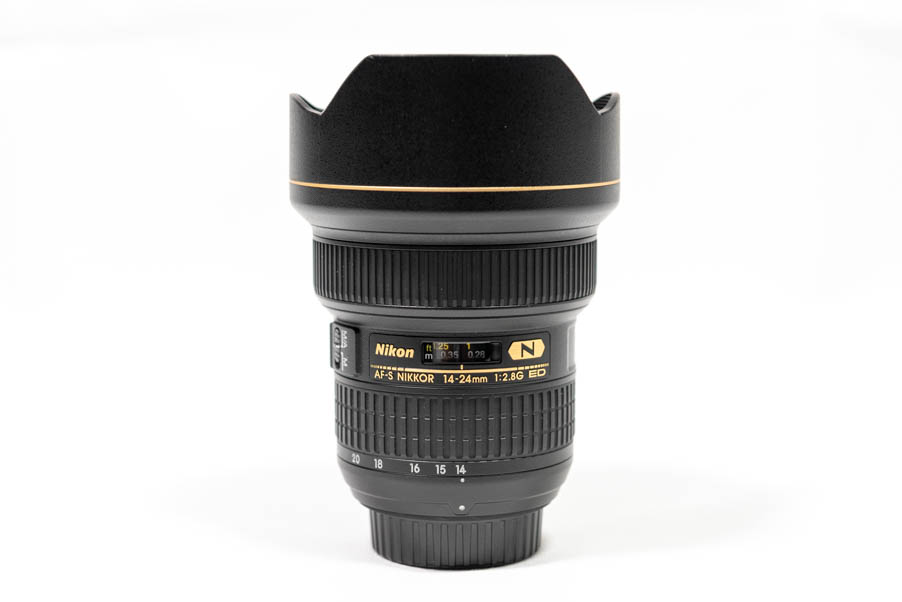 The 14-24 f/2.8 in it's full bloom.
The 14-24 f/2.8 in it's full bloom.
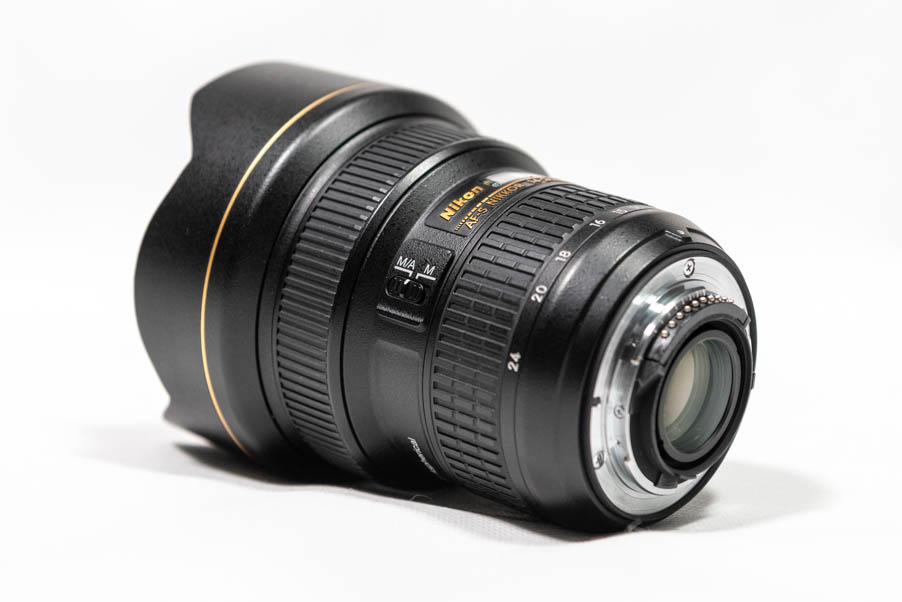 F-Bajonett.
F-Bajonett.
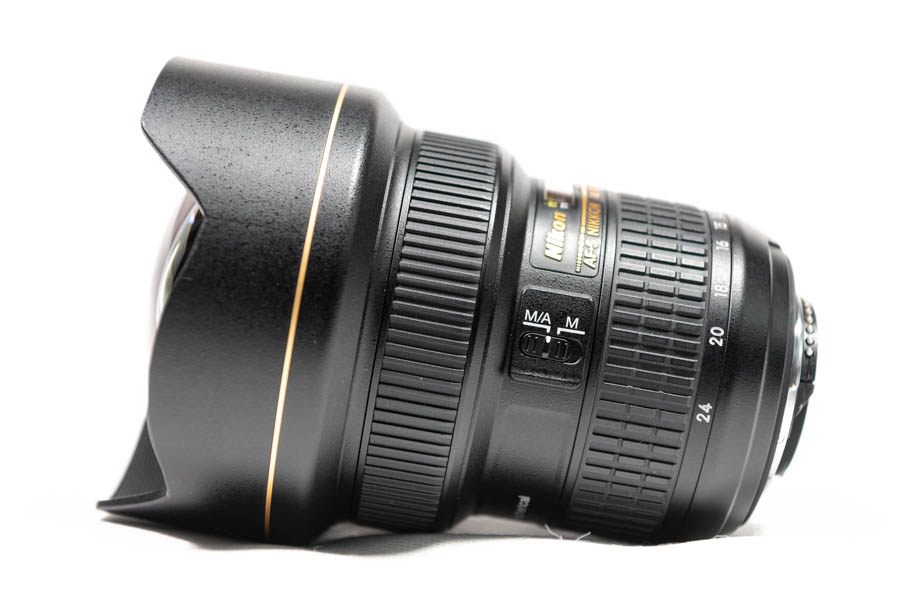 Just a manual switch. No more controls.
Just a manual switch. No more controls.
The body houses the 14 glass elements, two of them are ED and three aspherical lenses. The focus works internal, so there is no change in the length of the body during focus. If the focal length is changed on the other hand, the lenses move internally, if you are at 14 mm the front lens ends where the lens hood ends, so the camera should be carefully handled when walking around without lens cap or you zoom to 24 mm and the front element disappears in the inner of the body.
The closest focus distance is at 28 cm at 18 to 24 mm. The smallest aperture is 22. The package of the lens supplies the CL-M3 soft case, for useful protection.
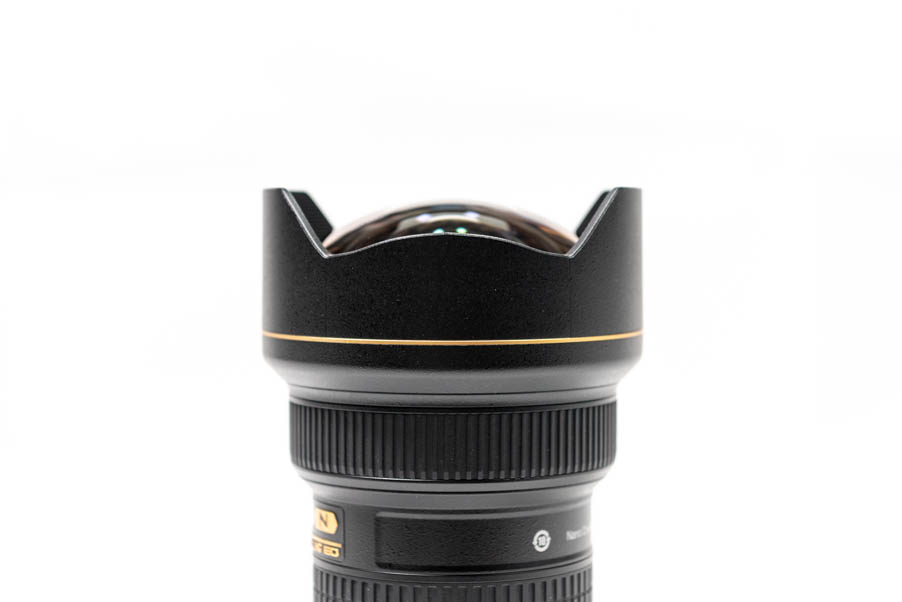 The front lens at 14 mm.
The front lens at 14 mm.
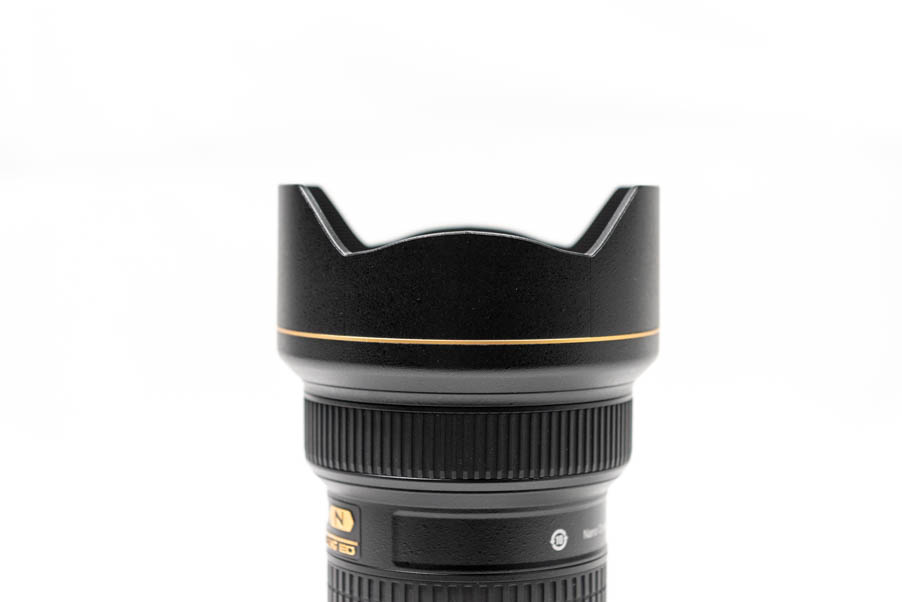 The front lens at 24 mm.
The front lens at 24 mm.
Image Quality
The auto focus is insane for a 13 year old lens. It snaps instantly on the subject. Even in low light and all that with an almost inaudible auto focus motor. Nikon’s Silent Wave Motor does a great job in this lens. It joins the other two Nikon lenses 24-70 f/2.8 and the 70-200 f/2.8 very well.
The sharpness is excellent, as expected for a wide-angle lens. The sweet spot for the center of the image is f/5.6 if you take a look on MTF charts which can be found on the net. At f/8, the sharpness ratio from the center to the corners is as well balanced as usual. The contrast and the colors are strong and vivid, even with the camera flat profile.
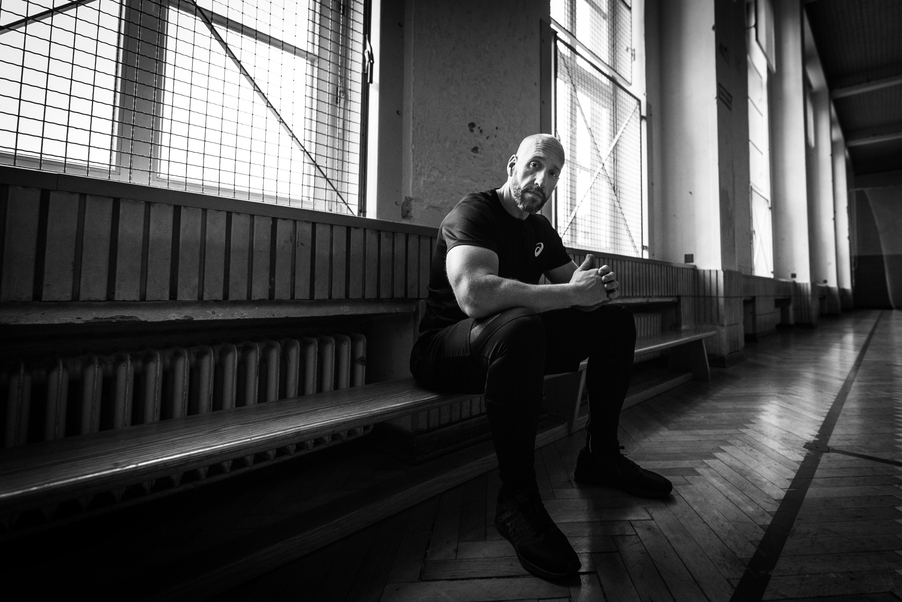 People photography is also possible, if the environment is to be strongly integrated. 1/30 sec, ISO 640, f/3.2 @ 15 mm
People photography is also possible, if the environment is to be strongly integrated. 1/30 sec, ISO 640, f/3.2 @ 15 mm
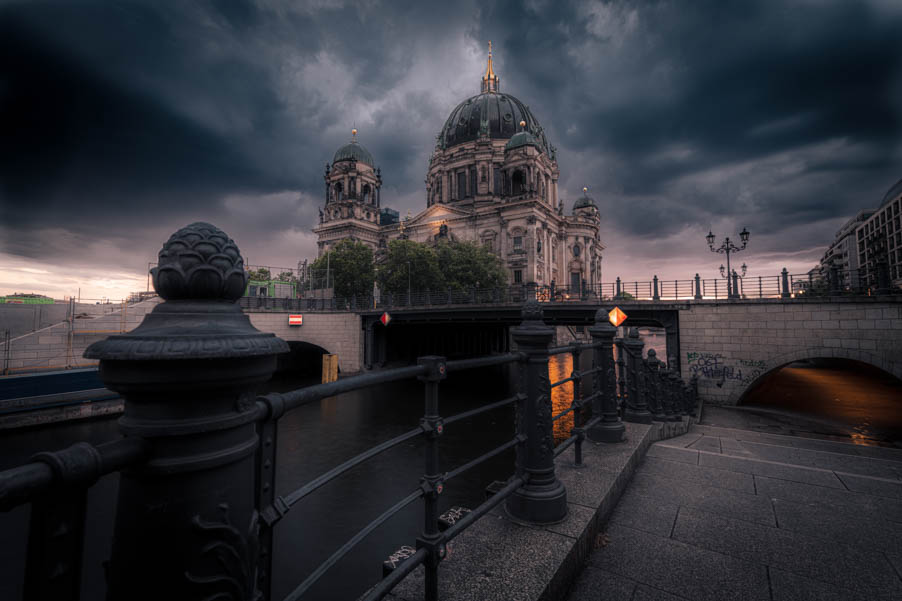 Before this shot some rain drops had to be wiped off. HDR, ISO 64, f/8 @ 16 mm
Before this shot some rain drops had to be wiped off. HDR, ISO 64, f/8 @ 16 mm
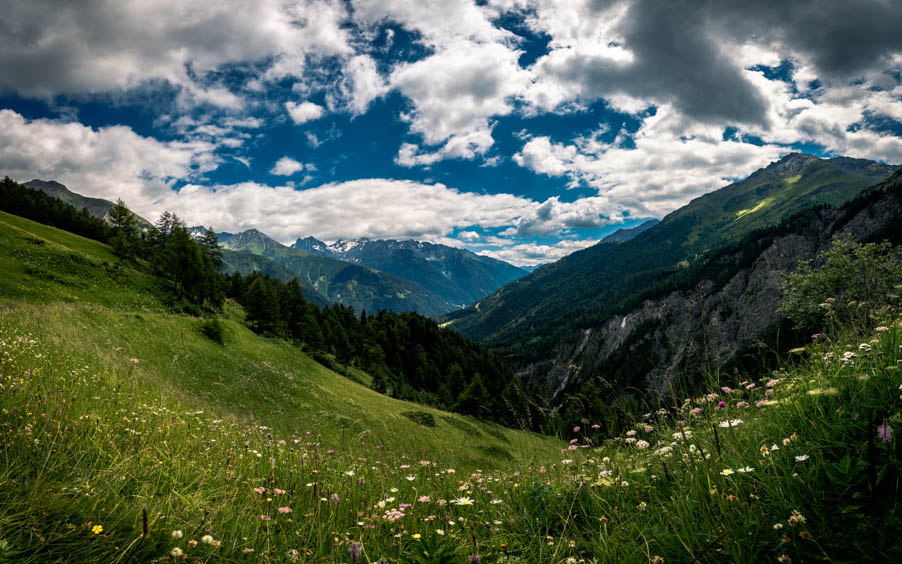 A panorama made of three exposures. 1/200 sec, ISO 64, f/8 @ 14 mm
A panorama made of three exposures. 1/200 sec, ISO 64, f/8 @ 14 mm
The bokeh for a wide angle lens is very uninteresting, the 14-24 doesn’t surprise in this discipline. When your are looking for blurred circles and other out of focus aesthetics you just need a longer focal length or a prime.
The vignetting is good visible at f/2.8 and 14 mm. If you stop down it disappears more and more. But with one click in Lightroom, you get rid of the vignette easily.
 f/2.8 - f/3.2 - f/3.5 - f/4 - f/4.5
f/2.8 - f/3.2 - f/3.5 - f/4 - f/4.5
 f/5 - f/5.6 - f/6.3 - f/7.1 - f/8
f/5 - f/5.6 - f/6.3 - f/7.1 - f/8
For me, the only real downer is the easily developing lens flare at 14 mm in back light. It's still visible at 15, 16 and 18, but at 14 mm it's really hard to get away, unless you place the camera at a very strange angle to the object, where of course the beauty of the composition gets lost.
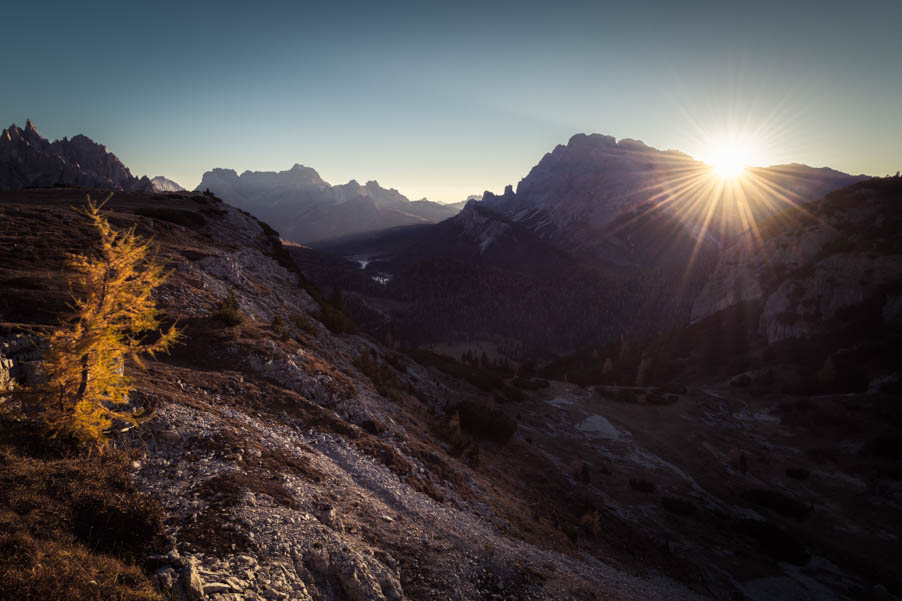 The lens flare was retouched on this image. 1/60 sec, ISO 64, f/11 @ 20 mm
The lens flare was retouched on this image. 1/60 sec, ISO 64, f/11 @ 20 mm
Of course, this can also be fixed with the help of Photoshop, in which one simply does a little blending. With a shot with lens flare and one without, for example, the incident light was simply covered by hand. But this requires more work again. The extreme wide angle is also great for stitching panoramas. This focal lengths create a really wide look.
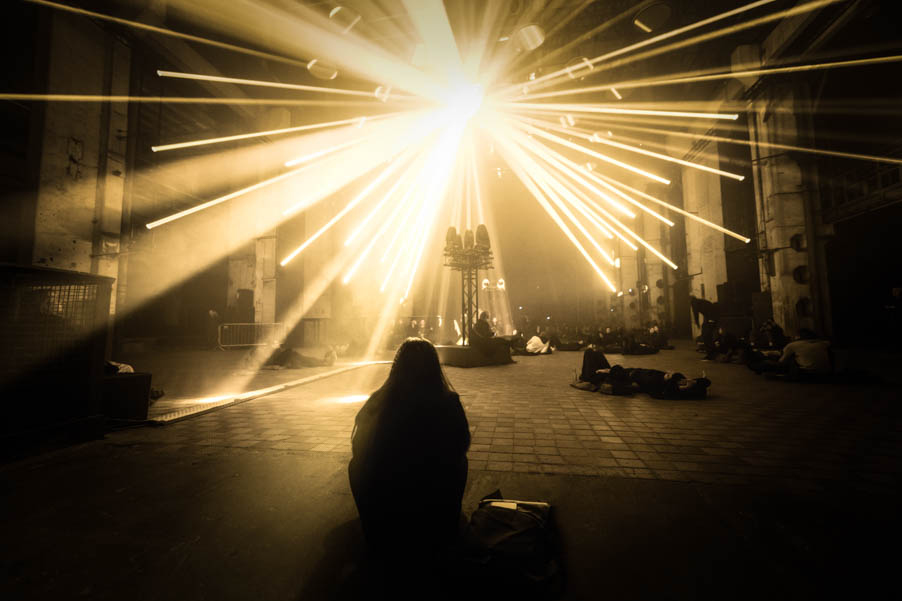 Even in this low light conditions one can rely on the auto focus. 1/20 sec, ISO 5000, f/3.2 @ 14 mm
Even in this low light conditions one can rely on the auto focus. 1/20 sec, ISO 5000, f/3.2 @ 14 mm
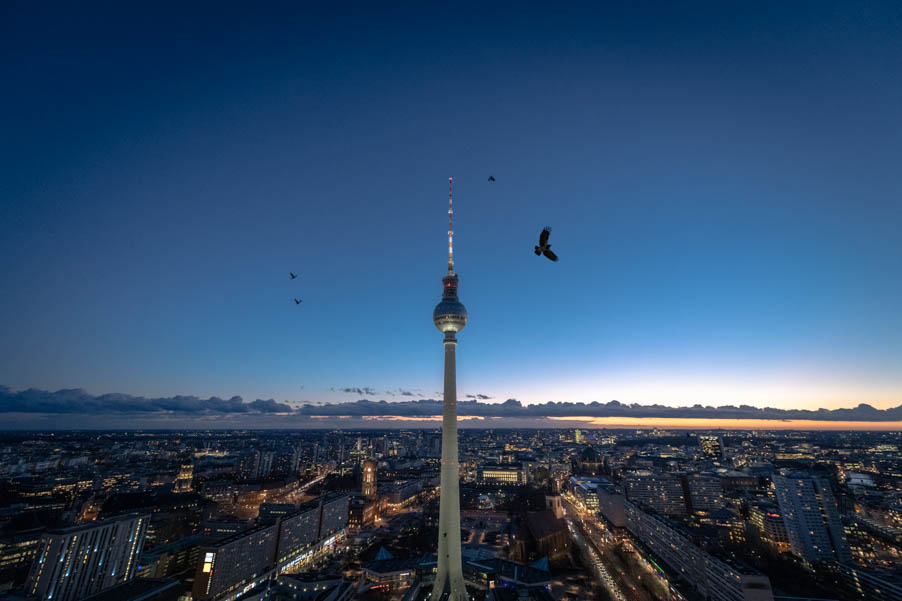 The auto focus did a fantastic job to capture the crow. 1/160 sec, ISO 2500, f/2.8 @ 15 mm
The auto focus did a fantastic job to capture the crow. 1/160 sec, ISO 2500, f/2.8 @ 15 mm
Filming
Due it’s short body it is also well made for filming. A lot of light is coming through, one realize this when you switch from the 24 mm to the 24 mm of the 24-70 f/2.8 VR. The image is getting quite darker with the same exposure and aperture settings. So the 14 mm is in a filming scenario for ultra wide angles scenes and could be very artisticly.
If you want to use high quality ND Filters, to stop down the image, then you have to invest in a filter holder and filter. That’s an expense factor which shouldn’t be underestimated.
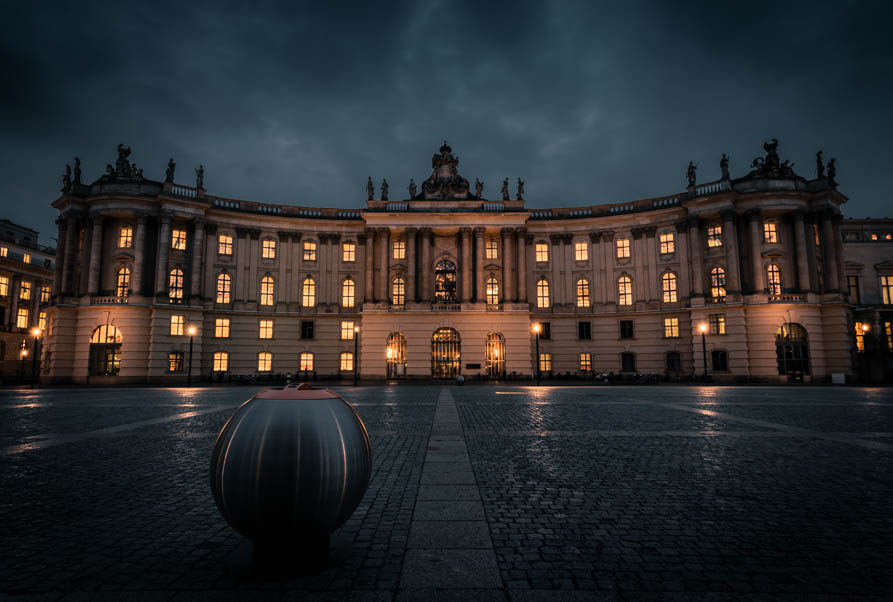 Wet conditions for the 14-24 are no problem. HDR, ISO 64, f/9 @ 20 mm
Wet conditions for the 14-24 are no problem. HDR, ISO 64, f/9 @ 20 mm
Conclusion
The Nikkor 14-24 mm f/2.8G ED is a reliable and robust companion on any trip since 4 years and I can only recommend it to all serious landscape photographers. Even after 12 years presence on the market this lens is outstanding for any Nikon photographer. The price tag is still hard to swallow: 1600 Dollar in the US and over 1600 Euros here in Germany. What you get is an excellent lens, with reliable weather sealing and nice workout weight. But the most important is the image quality, which is still on a superb level.
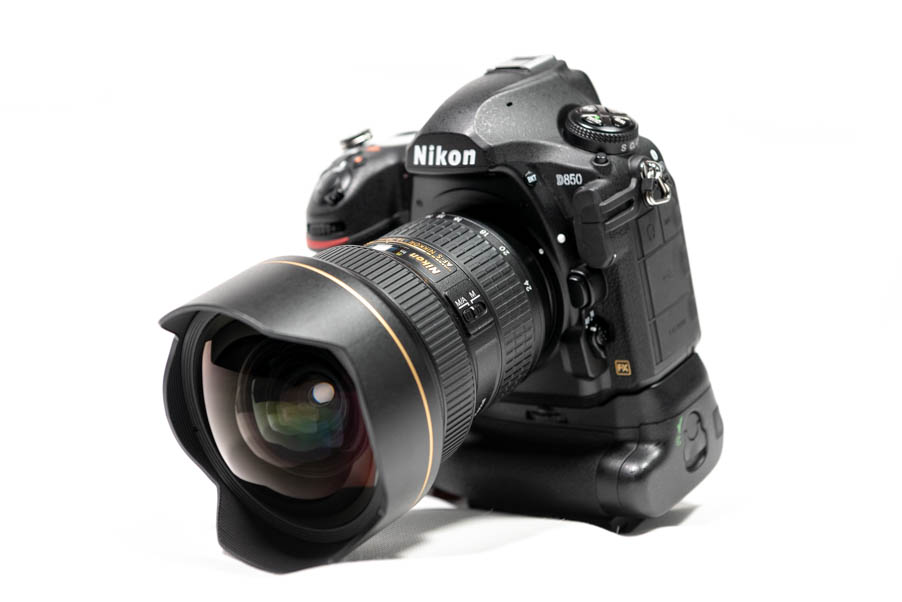 The 14-24 on the D850.
The 14-24 on the D850.
The ones from Tamron and Sigma should be considered too, if you don’t want to put so much money on the table. Of course Nikon will bring some day an updated version of this lens, which will be more modern and lighter, but until then, you don't do anything wrong.
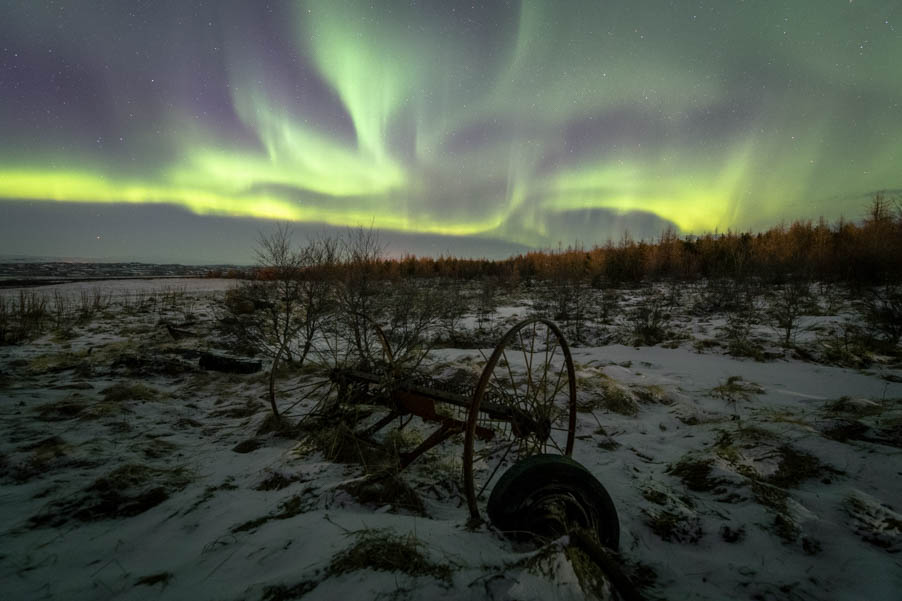 Polar lights on Iceland. 13 sec, ISO 8000, f/4 @ 14 mm
Polar lights on Iceland. 13 sec, ISO 8000, f/4 @ 14 mm
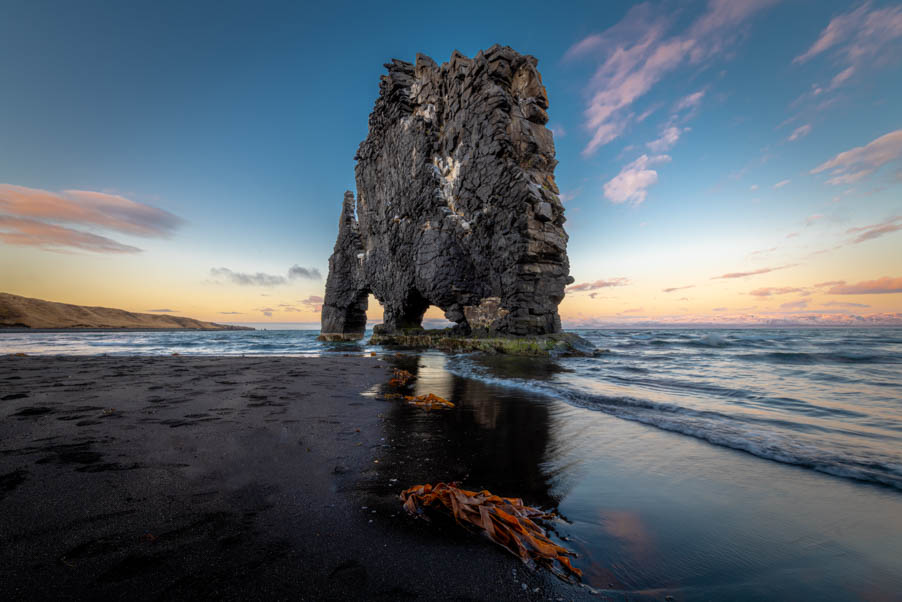 Sunset at Hvítserkur in the north of Iceland. HDR, ISO 64, f/9 @ 15 mm
Sunset at Hvítserkur in the north of Iceland. HDR, ISO 64, f/9 @ 15 mm

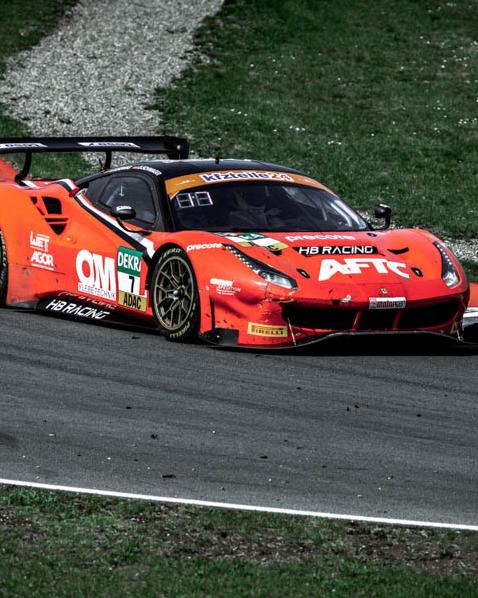
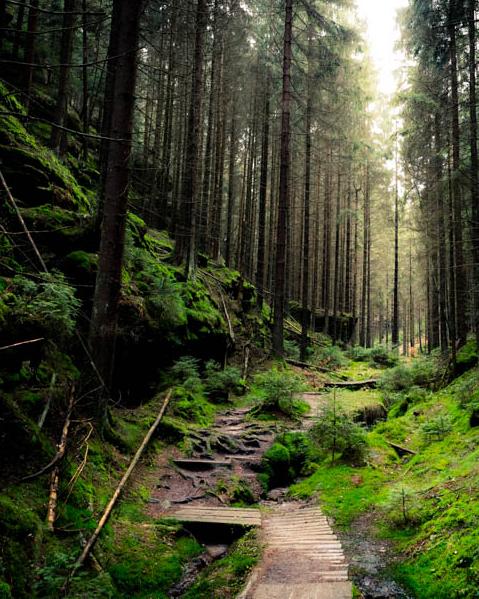
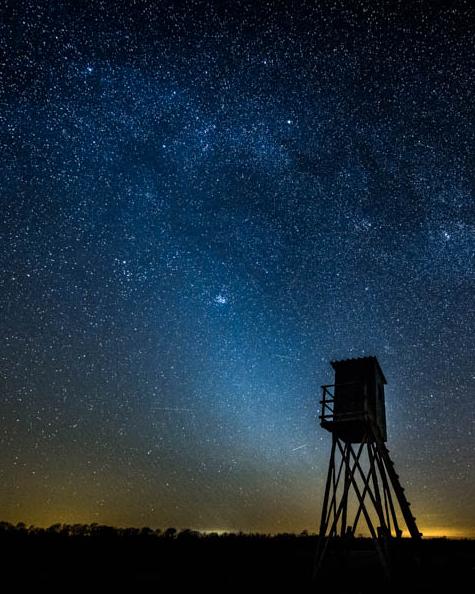
Report
My comments